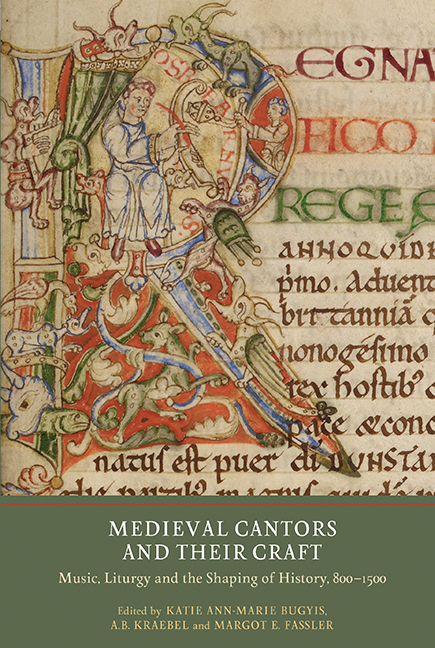Book contents
- Frontmatter
- Dedication
- Contents
- List of Illustrations
- Contributors
- Acknowledgments
- Abbreviations
- Miscellaneous Frontmatter
- Introduction
- PART I The Carolingian Period
- 1 Historia: Some Lexicographical Considerations
- 2 Liturgy and History in the Early Middle Ages
- 3 Notker Bibliothecarius
- 4 Singing History: Chant in Ekkehard IV's Casus sancti Galli
- PART II The Eleventh Century
- PART III England in the Twelfth Century
- PART IV On the Continent: Five Case Studies
- Index of Manuscripts
- General Index
- Miscellaneous Endmatter
3 - Notker Bibliothecarius
from PART I - The Carolingian Period
Published online by Cambridge University Press: 25 October 2017
- Frontmatter
- Dedication
- Contents
- List of Illustrations
- Contributors
- Acknowledgments
- Abbreviations
- Miscellaneous Frontmatter
- Introduction
- PART I The Carolingian Period
- 1 Historia: Some Lexicographical Considerations
- 2 Liturgy and History in the Early Middle Ages
- 3 Notker Bibliothecarius
- 4 Singing History: Chant in Ekkehard IV's Casus sancti Galli
- PART II The Eleventh Century
- PART III England in the Twelfth Century
- PART IV On the Continent: Five Case Studies
- Index of Manuscripts
- General Index
- Miscellaneous Endmatter
Summary
DE PASSIONIBUS SANCTORUM
Preter ea debes agones et uictorias sanctorum martyrum diligentissime perquirere, ut eorum exemplo non tantum inlecebras mundi respuere, sed et animam pro Christo ponere et cruciatus corporis pro nihilo ducere dei gratia et sancti spiritus inhabitatione consuescas; primumque precipuorum apostolorum Petri et Pauli, Andreae et Iacobi fratris Iohannis, sed et Iacobi fratris domini … Post apostolos sequitur passio uel hystoria de sancto Clemente. Dehinc mirabilis de sancto Alexandro, Euentio, Theodolo, Hermete et Quirino et ceteris …
[ON THE PASSIONS OF THE SAINTS
In addition you should most assiduously go through the struggles and the victories of the holy martyrs, that, by their example, you should not only spurn the delights of the world but you should place your soul for Christ and grow accustomed to think nothing of the troubles of your body except for the indwelling of the grace of God and the Holy Spirit. Firstly the chief apostles Peter and Paul and Andrew and James the brother of John and James the brother of the Lord … After the apostles follows the passion of St Clement and then wonders about St Alexander, Eventius, Theodolus, Hermes and Quirinus and the rest …]
This is but the tenth part of a substantial account of literature about the passions of the saints of the Christian Church, set out in chronological order and with explanations of the contributions of individual writers – including Eusebius, Jerome and Cassiodorus – to this body of texts. The letter of which it forms a part begins with the admonition ‘miror te res ineptas appetere’ (‘I am amazed that you are looking at unsuitable things’), continuing ‘si me audisses, omnes auctores nostros notissimos haberes’ (‘had you listened to me, you would have known all of our authors very well’).
The text is threaded through with commentary, often very personal observations, with the comments on authors and works cited described by Kaczynski as ‘specific and rich in detail’. The passage dealing with the passions of saints is shaped as a historical presentation of Christianity, and the place of individual figures within it:
Occidens etiam ipse licet sero, tandem tamen aliquando in germen erupit: Martinum Pannoniis ortum et non solum Italiam uel Germaniam seu Gallias sua presentia inluminantem, sed etiam omnes orientales ipsis testibus claritate luminis superantem.
- Type
- Chapter
- Information
- Medieval Cantors and their CraftMusic, Liturgy and the Shaping of History, 800-1500, pp. 41 - 58Publisher: Boydell & BrewerPrint publication year: 2017

